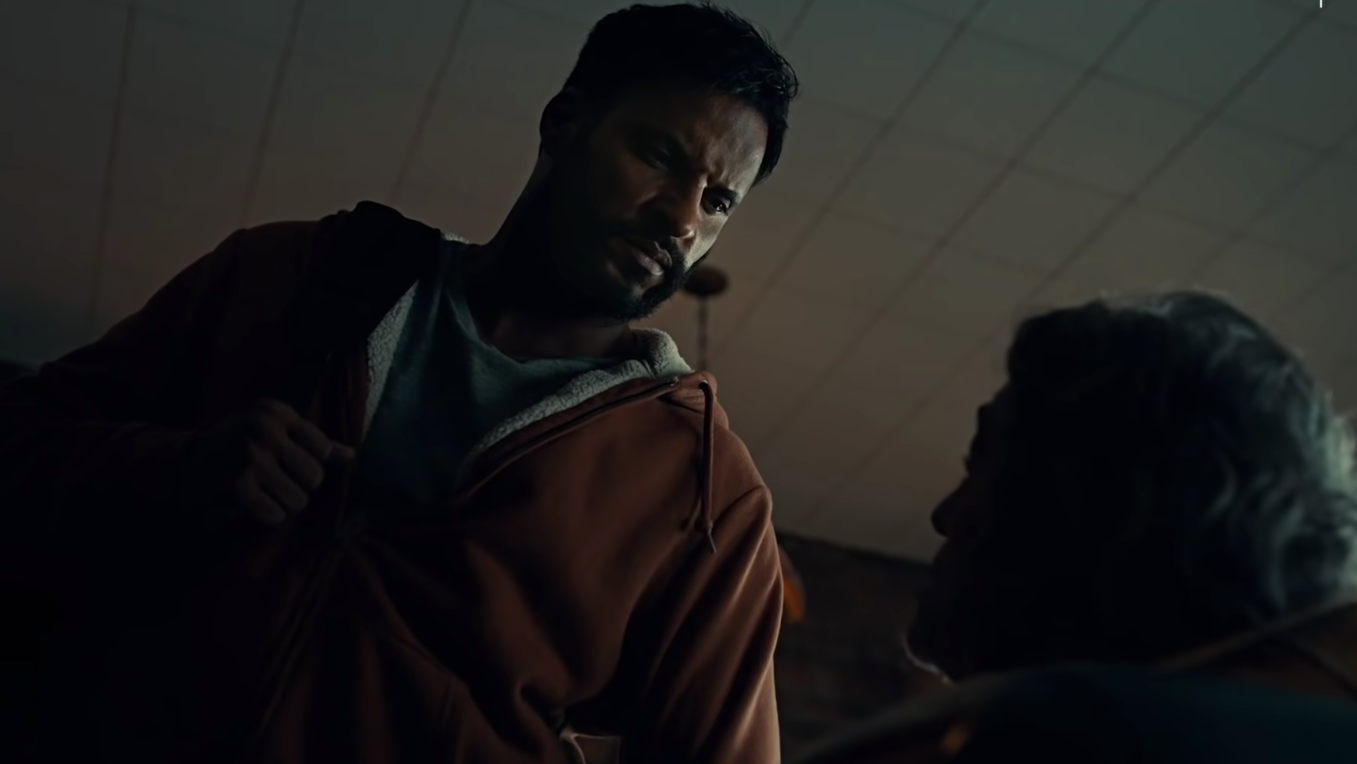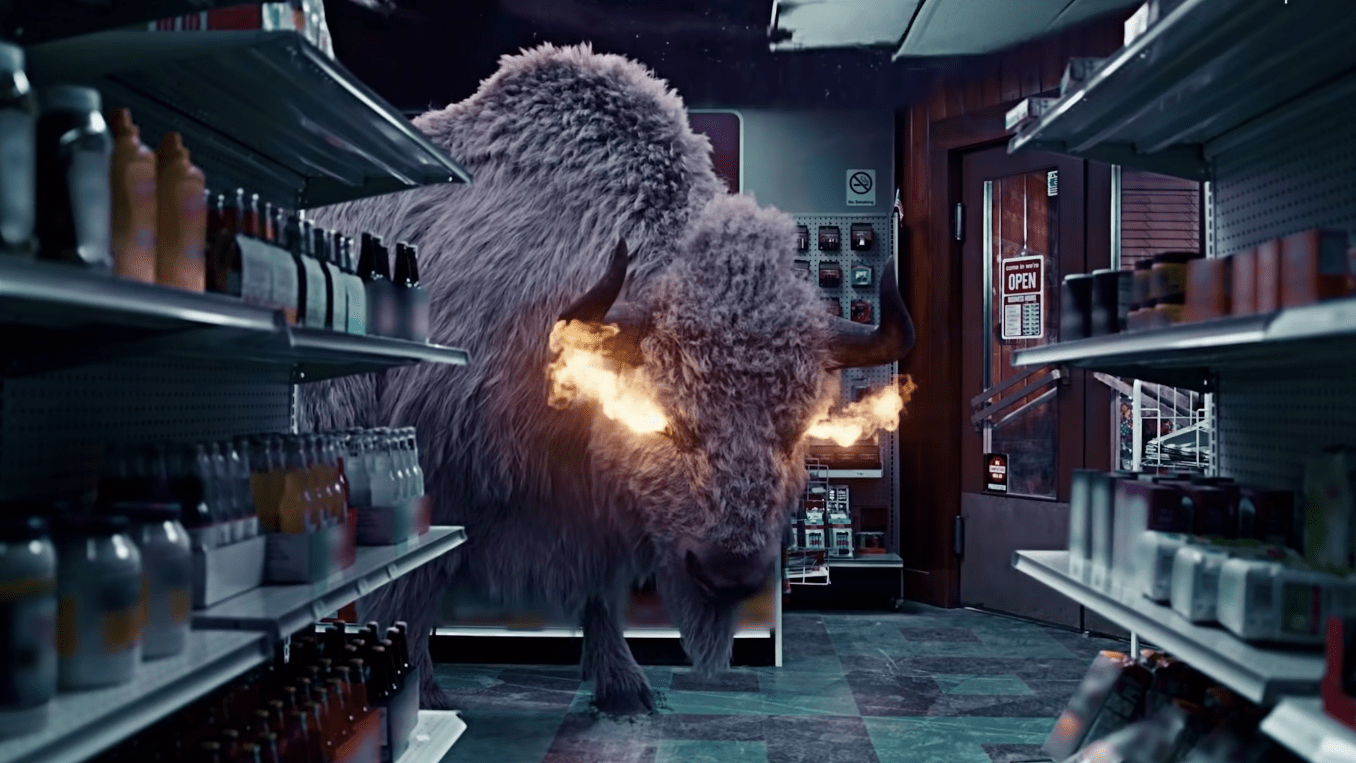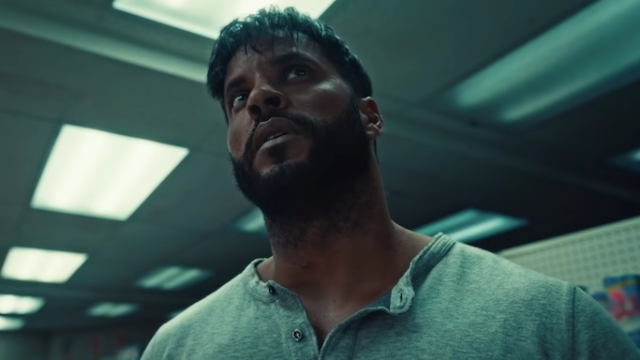American Gods spent trying to claw its way out of production hell before coming to Starz. Now, it’s one of the shows returning in 2021 after weathering the ongoing covid-19 pandemic that continues to devastate the entertainment industry. It’s almost miraculous to consider, given the on-set upheavals and exits that rocked American Gods over the course of its first two seasons.
Despite all that, something jumps out as season three opens in its latest formulation. As we’re reintroduced to Ricky Whittle’s Shadow Moon and Ian McShane’s Mr. Wednesday — two of the most important characters from Neil Gaiman’s original novel — it feels as if Starz and American Gods’ newest showrunner Charles H. Eglee don’t seem to have many new ideas to present.

The premiere episode of American Gods’ third season, “A Winter’s Tale” picks up right after the season two finale, “Moon Shadow,” in which Shadow Moon managed to hurt the New Gods’ Mr. World (Crispin Glover) and New Media (Kahyun Kim) just as he learned he’s Wednesday’s son. Shadow’s discovery came just as the New Gods were attempting to frame him and some of Wednesday’s associates for acts of terrorism, with their goal being to harness the power of social media to throw the mortal public into a state of chaotic panic.
Before the premiere fixes the camera on Shadow, we’re met by Marilyn Manson’s Johan Wengren, the unstable lead singer of Blood Death, a Viking-themed death metal band that channels its fans’ rage into worshipping Odin without people truly knowing that Wednesday is the god in disguise. As Wengren rages on stage and urges his audience to give in to their inner bloodlust, American Gods returns to its old, but still fascinating, exploration of how the older, more forgotten deities have managed to survive by tapping into creative, alternative, but ultimately lesser forms of worship.

It must be noted that in the time between season two and three in the real world, the United States of America was plunged further into chaos and panic as hundreds of Donald Trump’s enraged, conservative supporters descended upon and invaded the Capitol building in an attack that left five people dead. The episodes’ depictions of figureheads attempting to control narratives about domestic terrorism while also using it as a means to bolster their power at first seem as if the show very much has its finger on America’s pulse. It all starts to feel very coincidental, though, once “A Winter’s Tale” reminds you who all is involved in American Gods’ story, where exactly they are on the playing field currently, and what their motivations are at the moment.
When we catch up with Shadow in his quiet, pleasant, inconspicuous life working in a factory somewhere in America trying to hide from both the authorities and Wednesday, you know that his peace isn’t meant to last, as Starz’s plan for the season is to dig into the novel’s Lakeside arc. As ever, Whittle’s Shadow is as charming as he is clueless despite the fact that at this point, Wednesday’s repeatedly offered to begin being more open about his secrets and intentions for Shadow in the coming war.
[referenced id=”1663081″ url=”https://gizmodo.com.au/2021/01/ricky-whittle-talks-shadows-identity-crisis-in-american-gods-season-3/” thumb=”https://gizmodo.com.au/wp-content/uploads/2021/01/11/wsqpunrtpsa2usxncijj-300×168.png” title=”Ricky Whittle Talks Shadow’s Identity Crisis in American Gods Season 3″ excerpt=”The third season of American Gods will be a departure, finding Shadow in the small, seemingly innocent town of Lakeline. It’s not innocent, and for Shadow this isn’t just a quiet getaway — it’s a chance for him to figure out who or what he really is, and what he…”]
After three seasons, Whittle’s Shadow still feels as if he’s stuck somewhere near the beginning of his adventure, in part because the show’s plot is so unevenly split between the whole of the ensemble in a way that makes the progress often feel nonexistent. Just as Shadow caves and decides to accept his wayward father’s offer for protection and more information, the episode drops Shadow off in Lakeside to meet a whole slew of new characters like Ann-Marie Hinzelmann (Julia Sweeney), Chad Mulligan (Eric Johnson), and Marguerite Olsen (Lela Loren). Fans of the book will appreciate seeing them, though their introductions only emphasise the idea that American Gods is spinning its wheels.
Positive things, like Whittle and McShane’s excellent chemistry, are undercut by the fact that we’ve already seen quite a bit of the two playing petty conmen together while knowingly concealing their identities from unsuspecting humans. The early hints that there might be something mystical about Lakeside aren’t at all surprising given how far into the story American Gods already is, but for some reason, everything comes as a shock to Shadow which, here, makes him come across as guileless to the point of near absurdity.
Though the specifics of their arcs this season all vary, what the characters all have in common is a presentation that feels almost like a sort of soft reboot — potentially driven by Starz’s understandable belief that viewers might have jumped ship by now. With some gods already murdered and the larger spiritual atmosphere of the world already in upheaval, the gods’ war is well underway, and yet “A Winter’s Tale” (and more than a handful of this season’s subsequent episodes) is, at best, a rehash of what we’ve already seen, albeit dressed up slightly differently.
For those potentially just joining, the season three premiere also features a very necessary and overdue clarification as to what the New Gods’ plan is, exactly. It lets Mr. World — the personification of globalization originally portrayed by Crispin Glover — take on new forms played by Pose’s Dominique Jackson and Danny Trejo. World’s vision of building a “virtual church of the mind” is, again, a clever idea but the way it’s explained also draws attention to how, by this point, American Gods has seemingly lost two versions of Media, as played by Gillian Anderson and Kahyun Kim. Because these characters’ exits aren’t very well addressed, you can’t help but see how the series is attempting to plow through its production woes in hopes that people won’t think about them too hard.
This becomes increasingly difficult, however, the more that this season of American Gods reaches back into the past for ideas it can gently remix and bring back to the fore. Yetide Badaki’s Bilquis remains fixating to watch, and her performance stands out as one of this season’s strongest. That’s mainly because the actress is able to make the show’s uneven tone feel like a treacherous landscape that Bilquis is carefully but deftly counterbalancing. Though the other gods around her may still see her as an object to be wielded in war, Bilquis is now at a point where she’s actively tapping into her agency more to assert what it is she wants out of American Gods’ events. It’ll be interesting to see what, if anything, this season does with her character, given how she’s been teased as the focal point of some of the more fantastical upcoming episodes.

The same is true of Emily Browning’s Laura Moon who’s still on the warpath for revenge against Wednesday both for previously killing her and for the role he played in the death of Pablo Schreiber’s Mad Sweeney. Strong as Browning’s Laura is both literally and narratively, she feels somewhat adrift within the show, again, because there’s so much distance between her story and that of other characters’, even though they’re all interconnected. This is further compounded when it becomes obvious that the show’s on track to pair Laura up with a new Leprechaun portrayed by Game of Thrones’ Iwan Rheon. Browning and Rheon have solid chemistry, but their characters make it seem as if American Gods isn’t willing or able to try playing with new ideas in terms of story dynamics.
By the time that rapper Wale’s Chango and Herizen Guardiola’s Oshun show up in a sequence about the African deities communing with their Black worshippers, not only is it obvious that Starz was desperate to find a way to replicate the power and importance of Orlando Jones’ run as the show’s Anansi, it’s also undeniable that the network’s efforts ultimately fall short, in that regard. This is also true of American Gods newcomer Blythe Danner who plays a curious version of Demeter who very obviously functions as a replacement for Easter, the goddess of spring, who left the show along with Kristin Chenoweth.
In brief, fleeting moments, you can see the edgy, provocative energy that first made American Gods feel magical and fresh peek out before it gets lost in this season’s overall tonal swaying back and forth. However, it’s not clear whether what’s left will be enough to keep audiences engaged as we head into the new year of shows, both old and new, vying for our attention and praise.
